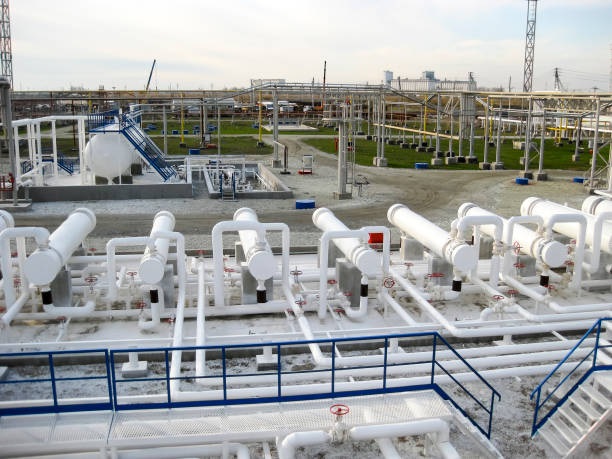
In the global energy landscape, the transportation of natural gas from production sites to end-users is a critical process that requires efficient and reliable infrastructure. Gas midstream companies play a pivotal role in this process, serving as the backbone of the natural gas supply chain.
From gathering and processing to transportation and storage, these companies are responsible for ensuring the safe and efficient movement of natural gas from the wellhead to distribution points across the country. In this comprehensive guide, we’ll delve into the role of gas midstream companies in fueling the future of energy, exploring their key functions, challenges, and contributions to the energy industry.
Understanding the Gas Midstream Sector
The gas midstream sector encompasses a range of activities involved in the transportation, processing, and storage of natural gas. These activities include:
Gathering and Processing
Gas midstream companies gather raw natural gas from production wells and process it to remove impurities and separate valuable natural gas liquids (NGLs) such as ethane, propane, and butane. This processed gas is then transported via pipelines to downstream facilities for further distribution.
Transportation
Once processed, natural gas is transported through an extensive network of pipelines to distribution points, including industrial facilities, power plants, and residential consumers. Gas midstream companies operate and maintain these pipelines, ensuring the safe and efficient delivery of natural gas to end-users.
Storage
Gas midstream companies also provide storage facilities for natural gas, including underground storage reservoirs and above-ground tanks. These storage facilities play a crucial role in ensuring the reliability and stability of natural gas supply, especially during periods of high demand or supply disruptions.
Key Functions of Gas Midstream Companies
Gas midstream companies perform several key functions that are essential for the reliable and efficient transportation of natural gas. These functions include:
Infrastructure Development
Gas midstream companies invest in the development and expansion of infrastructure, including pipelines, processing plants, and storage facilities, to meet the growing demand for natural gas and support the growth of the energy industry.
Operation and Maintenance
Gas midstream companies operate and maintain a vast network of pipelines and facilities to ensure the safe and reliable transportation of natural gas. This includes monitoring pipeline integrity, conducting regular inspections, and implementing maintenance and repair activities as needed.
Regulatory Compliance
Gas midstream companies adhere to stringent regulatory requirements governing the transportation and storage of natural gas, including safety standards, environmental regulations, and permitting processes. Compliance with these regulations is essential for ensuring the safety of personnel, communities, and the environment.
Challenges Facing Gas Midstream Companies
Despite their critical role in the energy supply chain, gas midstream companies face several challenges that impact their operations and growth prospects. These challenges include:
Regulatory Uncertainty
The gas midstream sector operates within a complex regulatory environment characterized by evolving standards and regulations. Uncertainty surrounding regulatory policies and permitting processes can hinder investment in new infrastructure and expansion projects, leading to delays and cost overruns.
Environmental Concerns
Gas midstream operations, including pipeline construction and maintenance, can have environmental impacts such as habitat disruption, soil erosion, and water contamination. Addressing these concerns requires careful planning, mitigation measures, and stakeholder engagement to minimize environmental damage and ensure compliance with regulations.
Market Volatility
Fluctuations in natural gas prices and market demand can impact the profitability of gas midstream companies, affecting their revenue streams and investment decisions. Volatility in energy markets, geopolitical tensions, and changing consumer preferences can create uncertainty for gas midstream operators and investors.
Contributions to the Energy Industry
Despite these challenges, gas midstream companies play a vital role in the energy industry and the broader economy. Their contributions include:
Reliable Energy Supply
Gas midstream companies ensure the reliable and uninterrupted supply of natural gas to meet the energy needs of industrial, commercial, and residential consumers. By maintaining a robust infrastructure and operational capabilities, these companies help to stabilize energy markets and support economic growth.
Job Creation and Economic Development
The gas midstream sector creates jobs and generates economic activity through infrastructure investment, construction projects, and ongoing operations. From skilled laborers and engineers to support staff and service providers, gas midstream companies contribute to job creation and economic development in communities across the country.
Environmental Benefits
Natural gas is a relatively clean-burning fossil fuel compared to coal and oil, emitting fewer greenhouse gases and pollutants. Gas midstream companies play a role in promoting the use of natural gas as a cleaner alternative to traditional fuels, supporting efforts to reduce carbon emissions and combat climate change.
Conclusion
Gas midstream companies are indispensable players in the energy supply chain, ensuring the safe, reliable, and efficient transportation of natural gas from production sites to end-users. Despite facing challenges such as regulatory uncertainty, environmental concerns, and market volatility, these companies continue to play a vital role in fueling the future of energy.
By investing in infrastructure, adhering to regulatory requirements, and supporting economic development, gas midstream companies contribute to a more sustainable and resilient energy future. As the demand for natural gas continues to grow, the role of gas midstream companies will remain essential in meeting the energy needs of communities and industries around the world.






